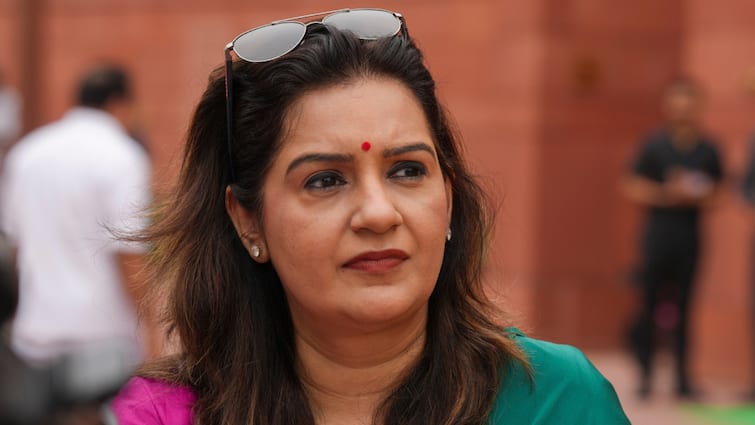Last Updated:
Concluding the matter, the High Court quashed the February 2025 orders and subsequent July 2025 decisions upholding the stoppage

The court, however, clarified that regulators were free to take fresh action if they followed proper procedure. File pic
The Bombay High Court has quashed orders issued by the Maharashtra Food and Drug Administration (FDA) and the Central Drugs Standard Control Organisation (CDSCO) that had forced two pharmaceutical companies to stop manufacturing medicines containing the painkillers Tapentadol and Carisoprodol. The court held that the regulators had acted in “breach of statutory procedure” and denied the firms a “fair hearing”.
Recommended Stories
Petitions filed by National Pharmaceuticals and Aveo Pharmaceuticals had challenged sweeping stop-production orders passed in February 2025, which halted all manufacturing activities at their units.
Justice NJ Jamadar, delivering the ruling, said that under Rule 85 of the Drugs and Cosmetics Rules, 1945, no licensing authority can suspend or cancel a licence without allowing the company to be heard.
In this case, the copy of the judgement seen by News18 said that the stop-production order came before any notice was issued, making the regulators’ action unsustainable. “The impugned actions of prohibiting the manufacture, sale and distribution of all the medicinal products were in clear violation of the statutory requirements,” the court said. “The orders are too fragile to merit countenance.”
Even after hearing the response of the regulatory authority, the court added, “This submission, though attractive at the first blush, loses significance if subjected to close scrutiny.”
Why the MSME industry is cheering the ruling
The verdict is significant because it reins in regulatory overreach while recognising the state’s responsibility to act against drug misuse. By calling out the arbitrary nature of the stop-production orders, the High Court underlined that even when tackling serious public health risks, authorities must act fairly and within the limits of the law.
The judgment has come as relief for many small drugmakers who have been complaining of rule violations during industry audits. Recently, small and medium-scale pharma companies reached out to the Prime Minister’s Office (PMO), warning that thousands of micro, small, and medium (MSME) pharmaceutical units could face shutdown under the revised rules drafted by CDSCO.
The PMO subsequently directed the Ministry of Micro, Small and Medium Enterprises (MSME) to examine what industry groups described as a brewing “crisis in the pharma sector.” The MSME ministry has, in turn, asked the Department of Pharmaceuticals and the Drugs Controller General of India (DCGI) to act on the concerns raised by small and medium drugmakers.
What was the incident?
The advisory, issued on February 7, 2025, by the Directorate General of Health Services (DGHS), called for the immediate withdrawal of permissions for the manufacturing and export of the painkiller–muscle relaxant combination. It cited reports, including a BBC investigation, that flagged misuse of the medicines in West Africa, where Indian products were allegedly being diverted to illicit markets. Acting on the advisory, CDSCO and the Maharashtra FDA carried out inspections at the petitioners’ plants and then ordered an immediate halt to all their operations on February 12.
The companies argued before the High Court that the orders were arbitrary and excessive. They said they had already surrendered their licences for Tapentadol–Carisoprodol products, as directed by the Centre, and had submitted compliance reports. Despite this, regulators imposed a blanket ban on all manufacturing activities, effectively shutting down their businesses. They also pointed out that the stop-production orders were issued before any show-cause notices, which came only two days later, on February 14 — a sequence they said violated the principle of natural justice and reduced the process to a formality.
“In the case at hand, the action of prohibiting the production stands on an even weaker foundation,” the judgement said.
The regulators defended their action by arguing that the circumstances justified “urgent intervention”. They told the court that inspections had revealed “serious lapses” at the facilities and that the abuse potential of the drugs created an extraordinary situation requiring immediate steps. They also said the directive was not targeted at these two companies alone but applied to all manufacturers of the combination in the interest of public health.
What did the court conclude?
Justice Jamadar was not convinced. The court stressed that even in cases involving public health concerns, administrative authorities must respect due process. “It is trite that even administrative decisions which impinge upon fundamental rights and have detrimental civil consequences are not immune from the imperative to adhere to the principles of natural justice,” the judgment said. The court further noted that the petitioners had already surrendered their licences for the contentious products, so extending the prohibition to all their manufacturing operations was both excessive and unwarranted.
Concluding the matter, the High Court quashed the February 2025 orders and subsequent July 2025 decisions upholding the stoppage. However, it clarified that regulators were free to take fresh action if they followed proper procedure. “The Competent Authority may pass appropriate orders in relation to the proposed action of cancellation or suspension of the manufacturing licence pursuant to the show-cause notice… in accordance with law,” the ruling said.
The decision now restores the companies’ right to manufacture all medicines other than the Tapentadol–Carisoprodol combinations they had already surrendered.
About the Author

Himani Chandna, Senior Associate Editor at CNN News18, specialises in healthcare and pharmaceuticals. With firsthand insights into India’s COVID-19 battle, she brings a seasoned perspective. She is particular…Read More
Himani Chandna, Senior Associate Editor at CNN News18, specialises in healthcare and pharmaceuticals. With firsthand insights into India’s COVID-19 battle, she brings a seasoned perspective. She is particular… Read More
September 24, 2025, 23:54 IST
Loading comments…
Read More



